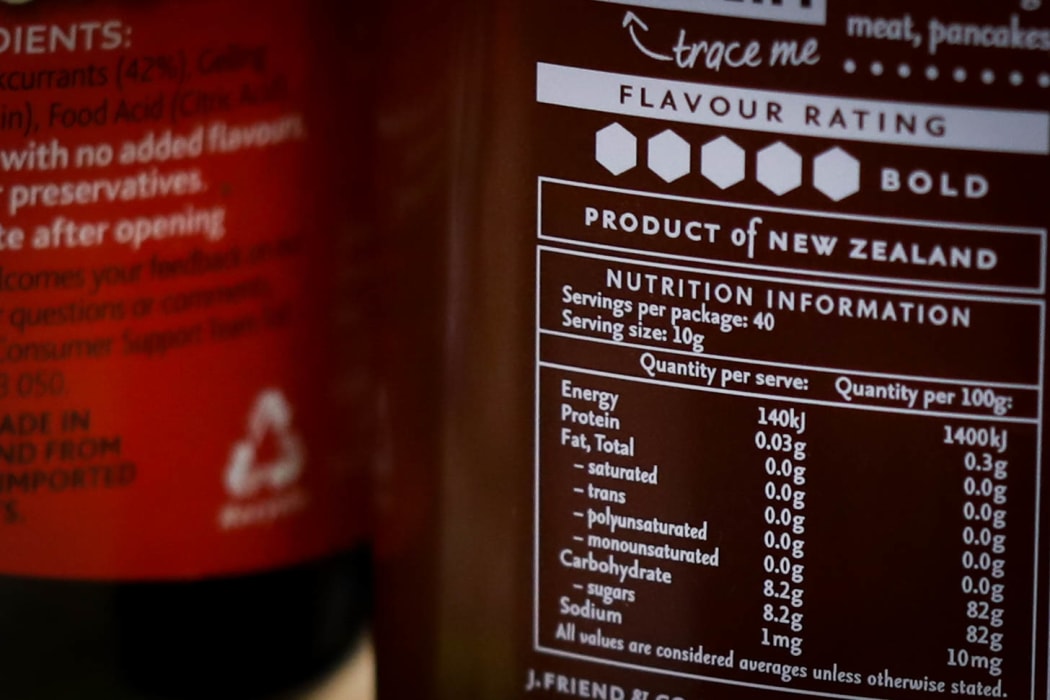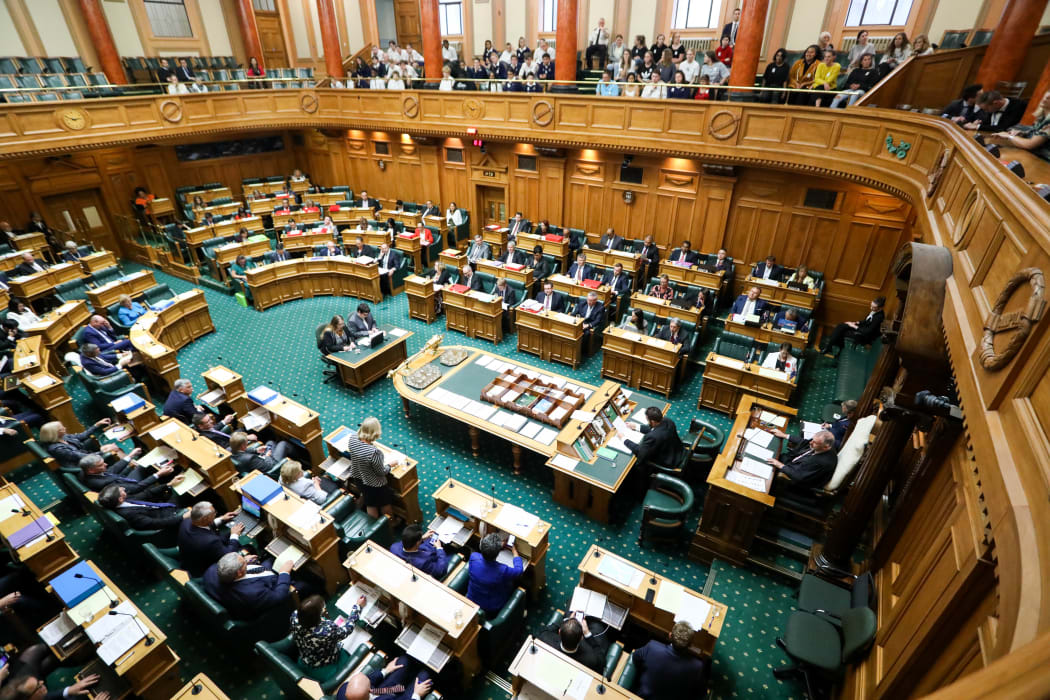Wednesdays are different at Parliament.
Yes, there’s the usual hour or so of Oral Questions - the daily semantic two-step.
But after that the House bursts into the General Debate, Parliament’s version of free-form oratory and then to really break the mold all of the bills debated are written by back-benchers.

One of the member's bills will require clearer labels for a product's country of origin Photo: VNP / Daniela Maoate-Cox
Question Time - 2pm
What
-
Twelve Questions are posed to ministers with inquisitorial follow-ups (supplementary questions). Roughly two thirds of them are asked by the Opposition. It’s an hour of high drama, linguistic puzzles and debates over the rules. And shouting. It’s an hour in which MPs’ careers can be made or lost.
Why
-
A key right of the Parliament is to ask written and oral questions of the government. It’s part of its role in holding power to account.
Taupatupatu Whānui - The General Debate 3pm(ish)

Photo: VNP / Phil Smith
What
-
Twelve speeches of up to five minutes in length. Bigger parties get proportionally more speeches.
Why
-
The general debate is for MPs to bring up issues that wouldn’t otherwise get raised, making it a wide-ranging debate. Sometimes parties take a coordinated approach and speak on the same issue but there’s no rule that they have to. There’s fewer rules on this debate and it can be both raucous and entertaining.
Members’ Day 4pm(ish) - 10pm
Every alternate Wednesday, time is devoted to bills put forward by members who are not ministers (i.e. opposition MPs and government backbenchers). They’re called members’ bills and get a shorter first debate, so quite a few can be done in a day. There’s always suspense around whether these bills will pass, unlike with government bills. Many of NZ’s most culturally significant changes have come from a member’s bill.
No-one ‘decides’ which members bills will be debated when. They are selected from a ballot, and debated in order, most-advanced-first, newest-last.
Up this week:
-
The third reading of the Education (National Education and Learning Priorities) Amendment Bill (in the name of Labour MP Jan Tinetti). The bill makes adjustments to educational objectives. The vote on the previous debate split along government/opposition lines.
-
The committee stage of the Consumers’ Right to Know (Country of Origin) Food Bill (in the name of Green MP Gareth Hughes). This bill will require single component food (like fruit or meat) to have its country of origin on it so people can make informed purchases. It received wide support in its second reading debate.
-
The committee stage of the Psychoactive Substances (Increasing Penalty for Supply and Distribution) Amendment Bill (in the name of National MP Simeon Brown). The Bill increases the penalty for selling or supplying non approved psychoactive substances from two years to eight years. National and New Zealand First have been voting for this bill. Labour, ACT and the Greens opposed it after it’s most recent debate.
-
The second reading of the Arbitration Amendment Bill, in the name of National MP Andrew Bayly. It seeks to: reverse the current rebuttable presumption of open proceedings (in line with overseas practice); resolve uncertainty regarding whether an arbitration clause in a trust deed would be binding. Every party but New Zealand First agreed to its first reading.
-
Protection for First Responders and Prison Officers Bill (in the name of New Zealand First MP, Darroch Ball) will have its first reading. This Bill will create a new offence of injuring a prison officer or first responder (i.e. staff from police, emergency health and fire services) with intent with a mandatory sentence of six months imprisonment. Also it would add emergency health and fire service staff to the the offence of ‘assault on police, prison, or traffic officers’ currently provided for in the Summary Offences Act 1981.


